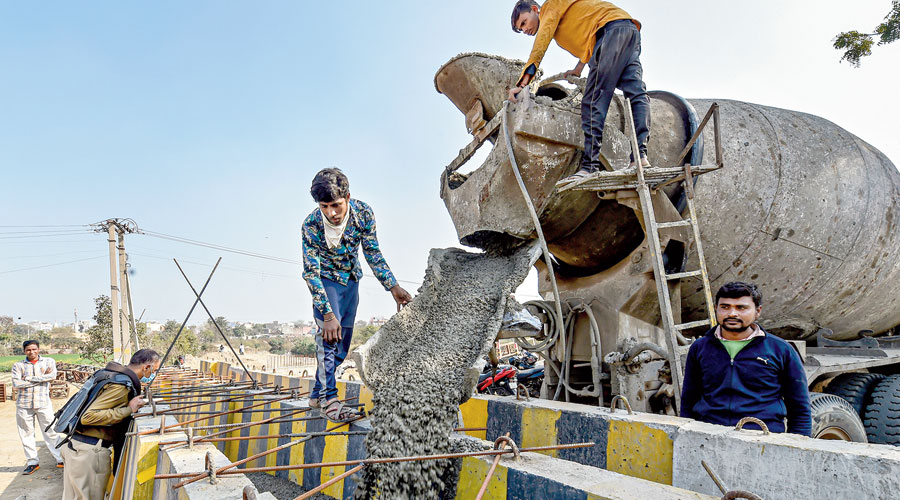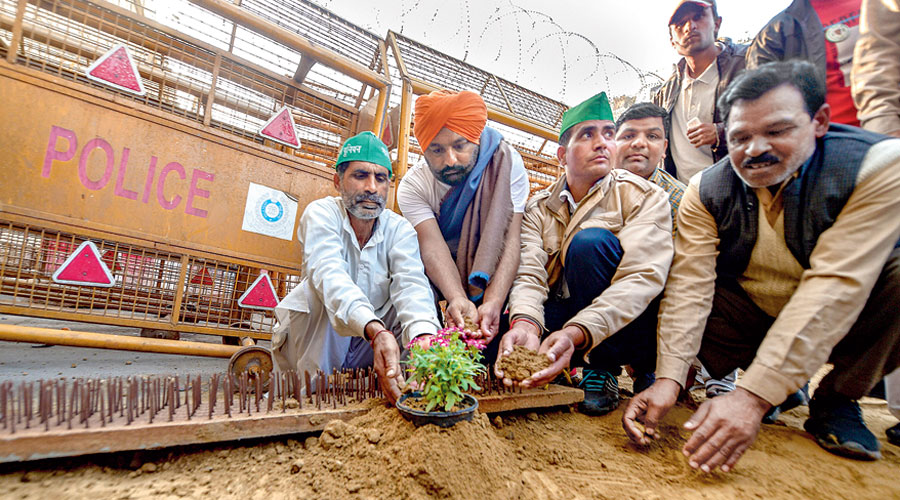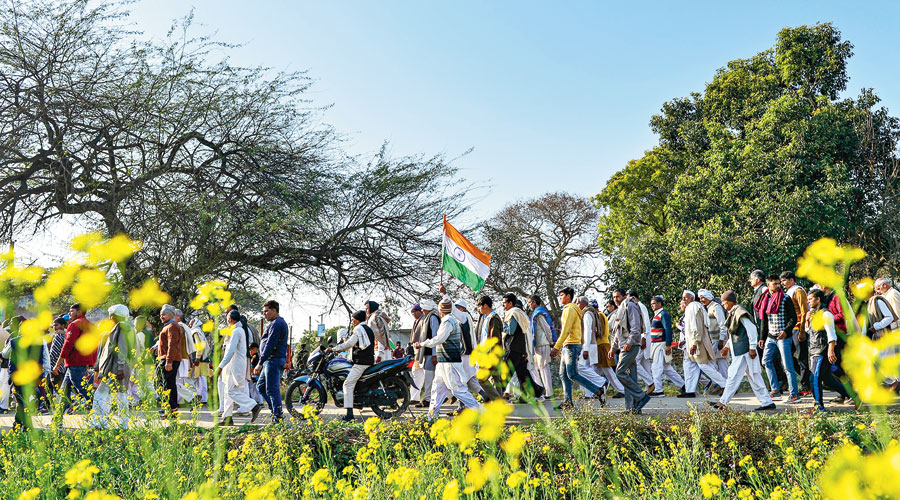Agriculture minister Narendra Singh Tomar on Friday told the Rajya Sabha the protests against the new farm laws were confined largely to one state, mouthing the government’s standard line that critics say reflects a divisive agenda.
“People in one state are victims of misinformation,” Tomar said, alluding to Punjab. When the Opposition MPs contested this and argued that farmers across the country are opposing the laws, Tomar repeated: “It is an issue of only one state.”
The minister spoke on a day thousands of farmers defied prohibitory orders in BJP-ruled Uttar Pradesh to attend a Kisan Mahapanchayat in Shamli district — the fourth such gathering in the state against the new farm laws.
In Haryana, the khap (caste) panchayats have declared their support to the protests. The protests have even made their way into weddings in the state, with many invitation cards bearing slogans such as “No farmers, no food” and photographs of the pre-Independence peasant leader Sir Chhotu Ram and freedom fighter Bhagat Singh, PTI reported.

A concrete barricade under construction at Delhi’s Singhu border on Friday. (PTI)

Farmers plant saplings near the spikes studded on the road to cut off the Ghazipur protest site from Delhi. (PTI)
Acknowledging protests in these states would give the lie to the government’s claims that only a small section of farmers are unhappy and that the protests have a Khalistani connection.
Minister Tomar also told Parliament that neither the farmer unions nor the Opposition had explained what was wrong with the laws that have been dubbed as “black laws” by the protesters.
“For two months I kept asking farmer unions what is kala (black) in the laws so that I can try to rectify. But I could not get the answer... Also nobody (from Opposition benches) tried to point out the provisions in the laws which are against farmers,” he said.
The farmer unions have given their objections to the three farm laws in writing to the government several times and have also spoken on these at length in public.
Opposition leaders, too, have repeatedly listed their problems with the laws. They did so again in Parliament on Friday.
Tomar argued the three new laws were not too different from legislation that most states had enacted over the years. About 20 states have facilitated contract farming by either amending their Agricultural Produce Market Committee (APMC) Acts or enacting new laws, he said.
The APMC Acts ban the sale or purchase of farm produce outside the APMC mandis (market yards).
The Farmers’ Produce Trade and Commerce (Promotion and Facilitation) Act — one of the Centre’s three new laws — allows the sale and purchase of farm produce outside the mandis. The farmers are worried this will undermine the mandis and lead to their eventual closure, leaving them at the mercy of corporate players.
The Swaminathan Commission had recommended more APMC mandis — one every 80sqkm — while the national average remains one every 500sqkm.
Tomar said the states collect a tax on trade at the APMC mandis, while there would be no taxes on trading outside these mandis. He said the agitation should be directed against the state governments instead of the Centre.
Shiromani Akali Dal member Balwinder Singh Bhunder countered Tomar, saying the new laws would give private players a monopoly. He said the farmers feared the no-tax rule would cause agricultural trade to gradually shift outside the APMC mandis to private mandis.
“Why do you not guarantee procurement on MSP?” Bhunder asked.
Petroleum minister Dharmendra Pradhan had on Thursday told the Rajya Sabha that the government had already implemented the Swaminathan Commission recommendations on the MSP.
On Friday, Biju Janata Dal member Sasmit Patra countered Pradhan. “The Swaminathan Commission recommended that MSP should be 50 per cent more than the cost of production, which should include the investment by farmers in terms of fertilisers, seeds and pesticides, family labour, rent on land and the interest on farm loans. But the government has only considered investment and family labour, not rent on land and interest,” Patra said.
The MSP of one quintal paddy would have been Rs 2,340 in 2017 had Swaminathan’s formula been implemented, he said. However, the MSP notified by the government was Rs 1,750.
Minister Tomar made a controversial statement that was later expunged from the records.











